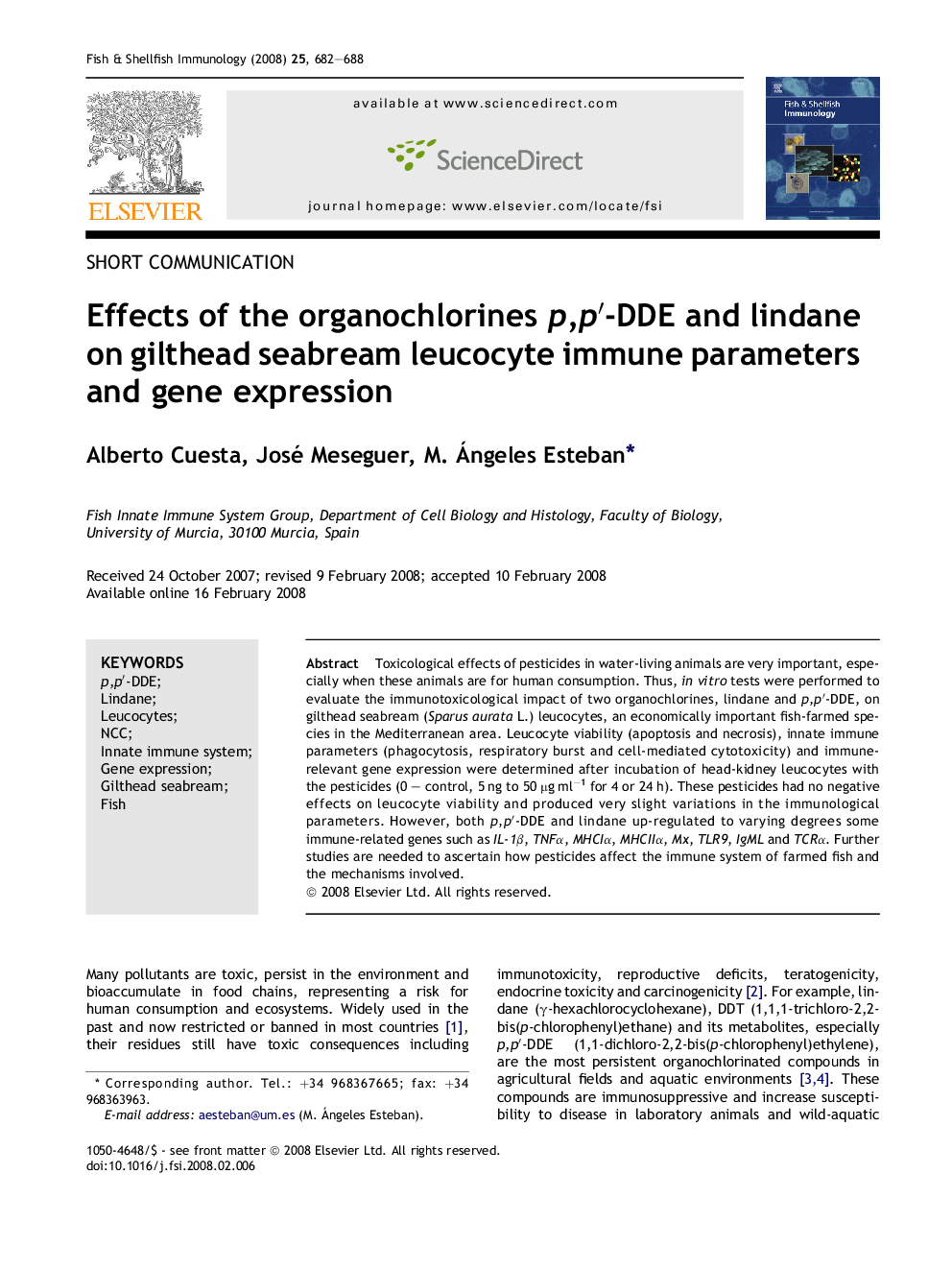| Article ID | Journal | Published Year | Pages | File Type |
|---|---|---|---|---|
| 2433198 | Fish & Shellfish Immunology | 2008 | 7 Pages |
Toxicological effects of pesticides in water-living animals are very important, especially when these animals are for human consumption. Thus, in vitro tests were performed to evaluate the immunotoxicological impact of two organochlorines, lindane and p,p′-DDE, on gilthead seabream (Sparus aurata L.) leucocytes, an economically important fish-farmed species in the Mediterranean area. Leucocyte viability (apoptosis and necrosis), innate immune parameters (phagocytosis, respiratory burst and cell-mediated cytotoxicity) and immune-relevant gene expression were determined after incubation of head-kidney leucocytes with the pesticides (0 – control, 5 ng to 50 μg ml−1 for 4 or 24 h). These pesticides had no negative effects on leucocyte viability and produced very slight variations in the immunological parameters. However, both p,p′-DDE and lindane up-regulated to varying degrees some immune-related genes such as IL-1β, TNFα, MHCIα, MHCIIα, Mx, TLR9, IgML and TCRα. Further studies are needed to ascertain how pesticides affect the immune system of farmed fish and the mechanisms involved.
